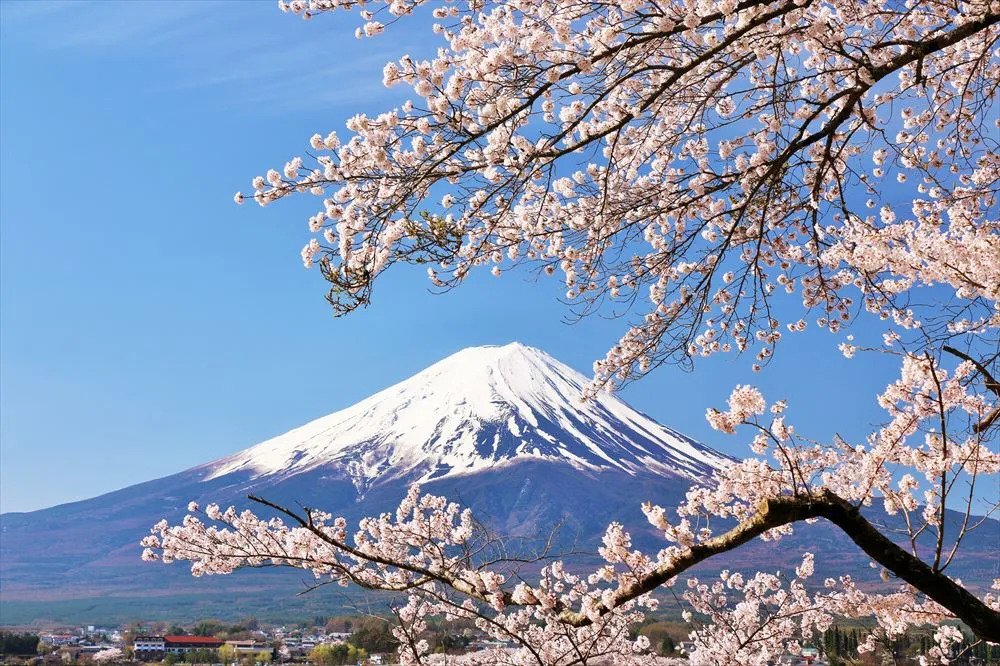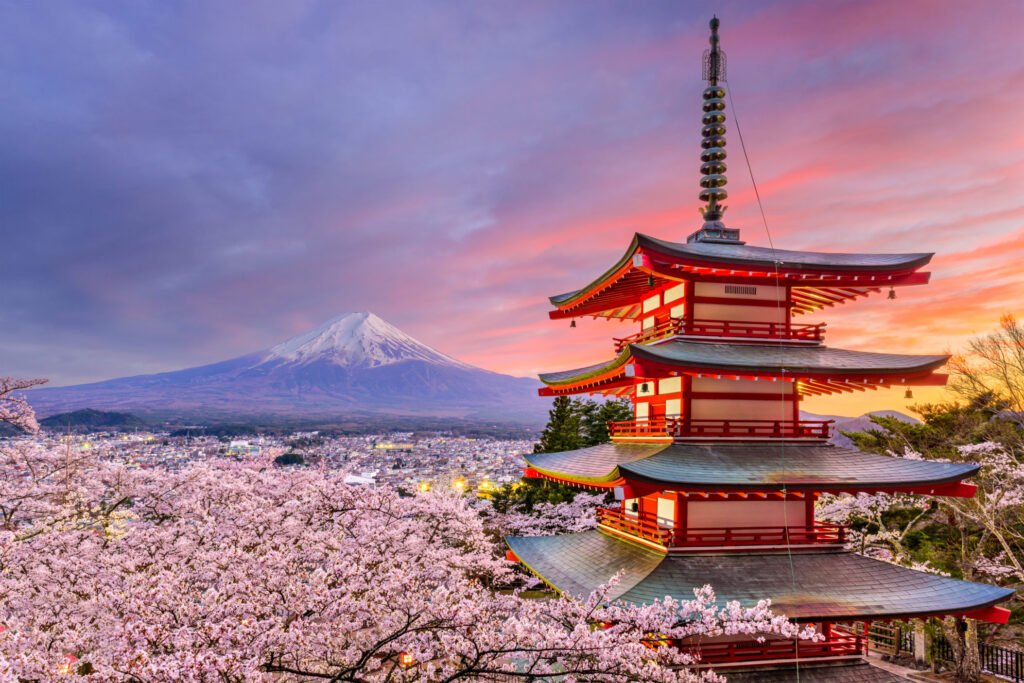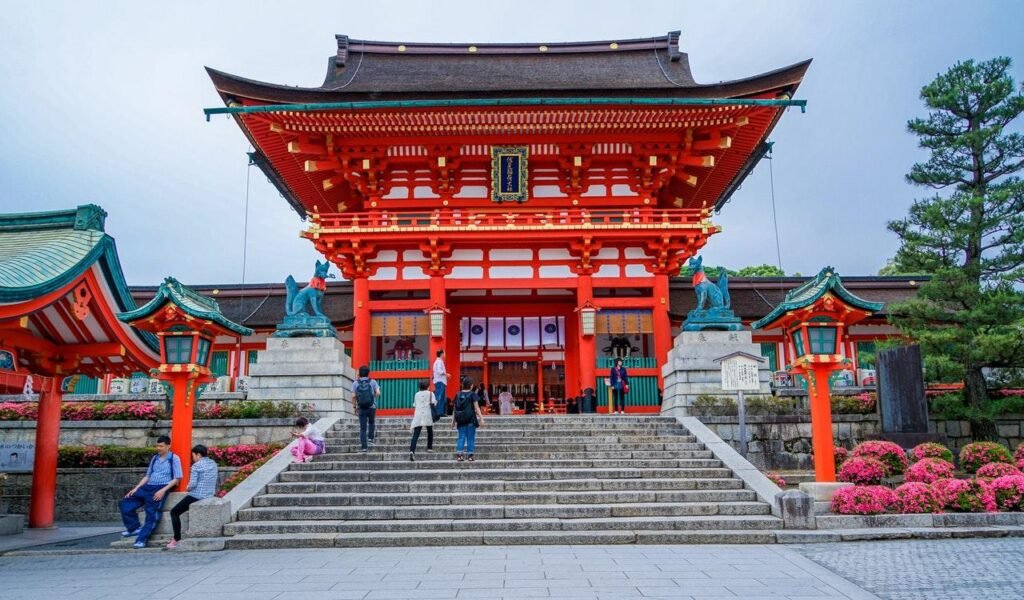Table of Contents
ToggleTop 50 Unknown and Interesting Facts About Japan
The East Asian archipelago of Japan is well known for fusing cutting-edge technology with age-old customs. Even though Japan’s rich cultural legacy is well known, there are a ton of fascinating facts about the country that are still mostly undiscovered.
Japan’s culture has a strong historical foundation, as seen by the widespread modern practice of customs like calligraphy, tea ceremonies, and ikebana (flower arranging). Many UNESCO World Heritage sites, such as historic castles, shrines, and temples that provide a window into Japan’s past, may be found throughout the nation. The former capital, Kyoto, is especially well-known for its traditional wooden homes and historically significant sites that have been maintained.

Japan, on the other hand, leads the world in innovation and technology. Advanced robotics, high-speed trains, and modern architecture are concentrated in cities like Tokyo and Osaka. Japan has made significant global contributions to the domains of electronics, robotics, and automotive engineering. The nation’s vibrant pop culture, which includes video games, anime, and manga, is another example of how committed it is to innovation. These mediums are hugely popular both domestically and abroad.
Among Japan’s numerous attractions is its breathtaking natural beauty. Japan boasts a diverse and stunning terrain, ranging from the peaceful settings of its national parks on Hokkaido to the recognizable Mount Fuji. The four distinct seasons—springtime cherry blossoms, vivid fall foliage, and winter skiing—are experienced throughout the nation.
A few of the delicious foods that developed in Japan are tempura, ramen, and sushi, which are appreciated throughout the world. Not only is Japanese cuisine wonderful, but it also showcases the nation’s focus on appearance and seasonality. Japanese food is known for its exacting attention to detail, which reflects a larger cultural love of harmony and aesthetics.
In this blog, we’ll explore 50 fascinating and interesting facts about Japan that might surprise you.
1. The World’s Oldest Company
The oldest firm in the world, Kongo Gumi, is based in Japan. It was established in 578 AD and continued to function continuously until 2006 when it amalgamated with another business.
2. Vending Machine Wonderland
More than 5 million vending machines may be found all throughout Japan, selling everything from toys to fresh eggs, hot meals, and umbrellas.
3. The Rabbit Island
Hundreds of wild rabbits live on Okunoshima, popularly known as “Rabbit Island,” where they are free to roam and used to interacting with people.
4. Longest-Running Emperor
Emperor Hirohito, popularly referred to as Emperor Showa, held the record for the longest reign in Japanese history with 62 years in power.
5.Love for Cats
In Japan, there are entire islands devoted to cats, such Tashirojima, where cats are considered lucky charms and outnumber humans.
6. Square Watermelons
Watermelons are grown squarely by Japanese farmers so that they are easy to stack and store. These watermelons can be highly costly and are mainly ornamental.
7. Shortest Escalator in the World
The Kawasaki department store More’s has the world’s tiniest escalator in its basement. It is only 83 cm (32.8 inches) tall with five steps.
8.Earthquake Frequency
Approximately 1,500 earthquakes occur in Japan each year, the majority of which are too tiny for people to feel.
9. The Population Decline in Japan
Since 2011, Japan’s population has been falling, and by 2050, it may have dropped by as much as 30%, according to estimates.
10. Love Hotels
“Love hotels,” or short-term lodgings geared at couples seeking seclusion, are prevalent in Japan. These hotels provide distinctive experiences and are frequently themed.
11. A High Rate of Literacy
Because of its excellent educational system, Japan has one of the highest rates of literacy in the world, at about 100%.
12.Anime and Manga
Anime and manga originated in Japan and have since spread over the world as cultural phenomenon. Manga makes up more than 40% of all Japanese publications.

13. Forest Bathing
In Japan, a common practice known as “shinrin-yoku,” or “forest bathing,” involves submerging oneself in the natural world to enhance one’s physical and emotional health.
14. Respect for Elders
Japan is a country with one of the longest life expectancies in the world, and its culture values honoring and taking care of the elderly deeply.
15. Hikikomori Phenomenon
The term “Hikikomori” is a sociological phenomena that occurs in Japan where people isolate themselves from society and spend months or even years living in their homes.
16. Extremely Low Rate of Crime
Japan has an incredibly low crime rate, making it one of the safest nations in the world. It’s not unusual to see young toddlers using public transit by themselves.
17. Creative Toilets
Modern amenities found in Japanese toilets are well-known, such as integrated bidets, heated chairs, and even music to muffle sounds.
18. Unclaimed Umbrellas
Since honesty is valued in Japanese society, misplaced objects like umbrellas are frequently abandoned in public areas until their owner comes looking for them.
19. Sumo Wrestling
Japan’s national sport, sumo wrestling, dates back more than 1,500 years. Shinto principles are at the core of sumo’s customs and ceremonies.
20. Season of Cherry Blossoms
In Japan, hanami, or watching cherry blossoms, is a very popular custom. There are festivals and picnics to commemorate the transient beauty of the flowers.
21. Silent Railways
The Shinkansen, or bullet trains, of Japan are well known for their quiet, smooth journeys and timeliness. Their top speed is 320 km/h (199 mph).
22. No Tipping Culture
In Japan, giving tips is not usual. Rather, exceptional service is anticipated and delivered without the requirement for further payment.
23. Tatami Flooring
Tatami mats made of rice straw are a common fixture in traditional Japanese households. These mats are said to be necessary for a cozy living area and have a unique scent.
24. The Temples of Kyoto
Kyoto is a city rich in religious and historical significance, with over 1,600 Buddhist temples and 400 Shinto shrines.
25. Haiku Poetry
Haiku is a type of traditional Japanese poetry that has only three lines with a 5-7-5 syllable structure. It frequently depicts the seasons and the natural world.
26. Unique Cuisine
Japanese food is renowned for its accuracy and variety. The cuisine of the nation includes delectable dishes like matcha, tempura, sushi, and ramen.
27. Mount Fuji
Japan’s highest peak, Mount Fuji, is a well-known representation of the nation. It is a well-liked hiking spot and a common theme in Japanese artwork.
28.Capsule Hotels
Travelers can stay in tiny, pod-like lodgings in Japan’s capsule hotels. Particularly in large cities, these hotels are reasonably priced and practical.
29. Fugu: The Poisonous Delicacy
Pufferfish, or fugu, is considered a delicacy in Japan, but because of its potentially fatal toxin, it must be prepared with extreme caution by trained chefs.
30. A Focus on Hygiene
An important aspect of Japanese culture is cleanliness. The streets are immaculate, and shoes are normally taken off before entering houses or other enclosed areas.

31. Culture of Kawaii
“Kawaii” translates to “cute,” and it permeates everything from toys and fashion to mascots and even food presentation in Japanese society.
32. Traditional Tea Ceremony
Matcha tea is prepared and consumed ceremoniously as part of the Japanese tea ceremony, or “sado,” which places a strong emphasis on aesthetics and awareness.
33. The Gods’ Island
Known as the “Island of the Gods,” Miyajima Island is regarded as one of Japan’s most picturesque locations and is well-known for its floating torii gate.
34. Self-Serve Restaurants
Japan has embraced automation in its dining culture; some establishments provide fully automated service, meaning that patrons place orders and receive their meals without having to speak to a waiter.
35.Omotenashi: The Spirit of Hospitality
The Japanese idea of “omotenashi” is unselfish hospitality, in which hosts anticipate and meet guests’ needs without seeking payment.
36. Geisha: Tradition Bearers
Geishas are traditional female performers from Japan who are adept at games, dance, and classical music. They contribute significantly to the preservation of Japan’s cultural legacy.
37. Napping at Work
In Japan, taking a nap during work, known as “inemuri,” is regarded as an indication of hard work and dedication, as it signifies that the worker is fatigued from extended work hours.
38. Kabuki Theater
The classic Japanese theatrical form of kabuki is renowned for its ornate costumes, dramatic performance, and historical storytelling. The practice dates back more than 400 years.
39. Meticulous Gift-Wrapping
In Japan, presenting gifts is an art form, and the wrapping is just as significant as the gift content. There is a lot of care and attention to detail in the presentation.
40. Mysterious Aokigahara Forest
The dense forest of Aokigahara, sometimes referred to as the “Sea of Trees,” lies at the foot of Mount Fuji. It is well-known for both its unsettling reputation and its connection to Japanese mythology.
41. Japan’s Unique Time Zone
Japan is a year-round single-time zone nation that observes UTC +9 as Standard Time (JST) and does not observe daylight saving time.
42. Respect for Nature
Japan has a great regard for the natural world, which is seen in its national parks, which make up around 20% of the nation, festivals, and customs.
43. The Bonsai Art Form
The Japanese art of bonsai, which reflects their love of nature and beauty, involves growing tiny trees in containers.
44. Japanese Baths
In Japan, public baths, or “onsen,” are highly valued customs that provide a setting for unwinding and mingling. A common source of the water is untreated natural hot springs.
45. Origami: The Paper Art
The traditional Japanese craft of origami involves folding a single sheet of paper into elaborate designs without using any glue or cutting tools.
46. Respect for Silence
In Japanese culture, silence is highly regarded, particularly in public areas. Speaking gently and avoiding boisterous interactions are considered courteous.
47. Zen Gardens
Japanese Zen gardens, also known as “karesansui,” are simple landscapes with carefully placed plants, gravel, and rocks that are intended to encourage meditation and introspection.
48. Shintoism’s Influence
Japan’s native religion, Shinto, which emphasizes harmony with the natural world and ancestor spirits, has a profound impact on the nation’s culture, festivals, and customs.
49. Breakthroughs in Technology
Japan is at the vanguard of technical innovation, leading the way in robots, electronics, and transportation despite its deeply ingrained customs.
50. The Symbolism of Cherry Blossoms
Japan’s national symbol, the cherry blossom, or “sakura,” symbolizes the transient aspect of life. Joy and introspection accompany the yearly bloom celebration.
Conclusion
Japan is a nation of opposites, where cutting-edge technology and antiquated traditions coexist. These little-known details provide insight into the complex web of Japanese invention, history, and culture. Japan has an infinite variety of surprises just waiting to be found, whether you’re thinking about visiting or you’re just fascinated by this intriguing country.

